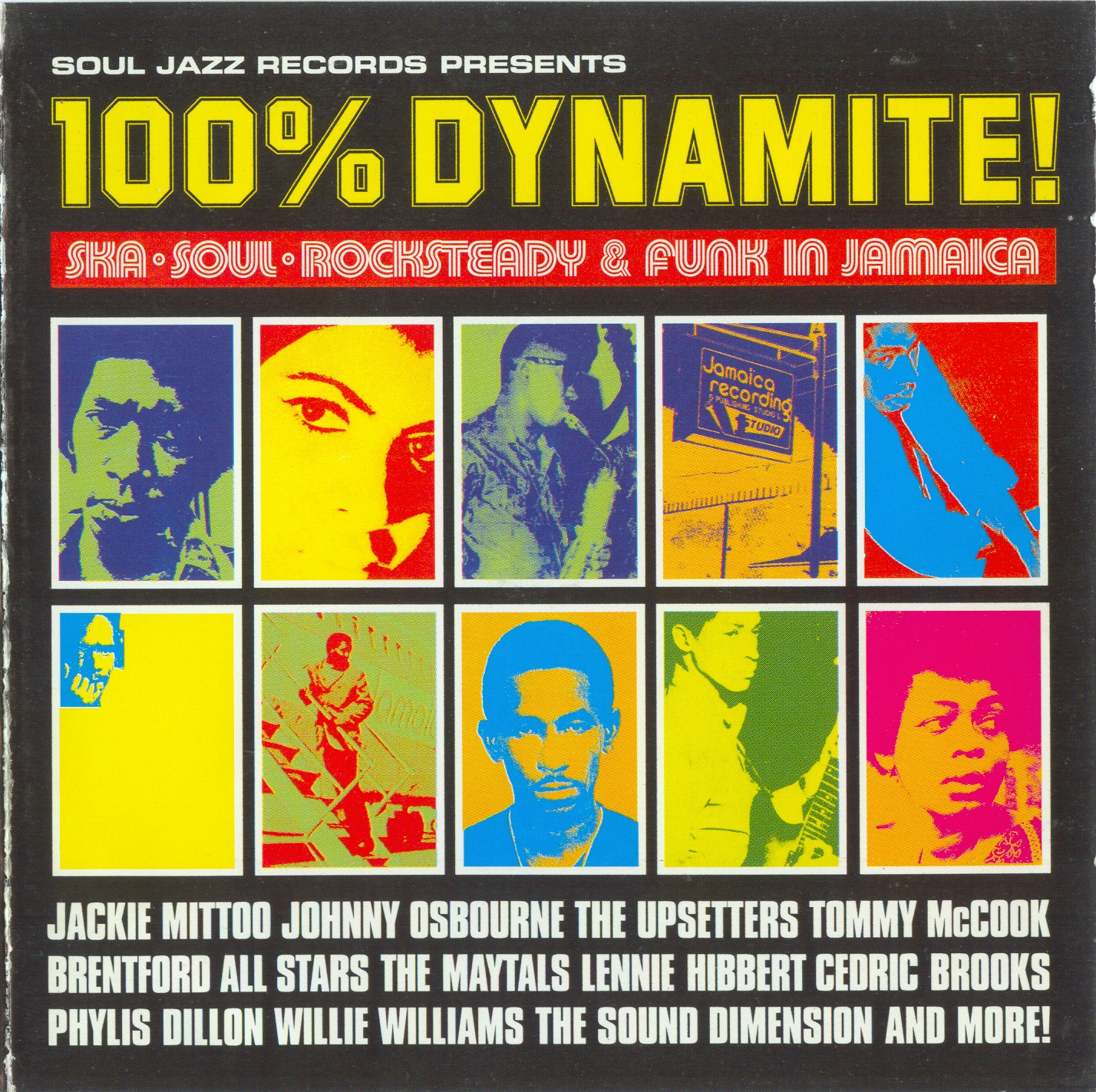
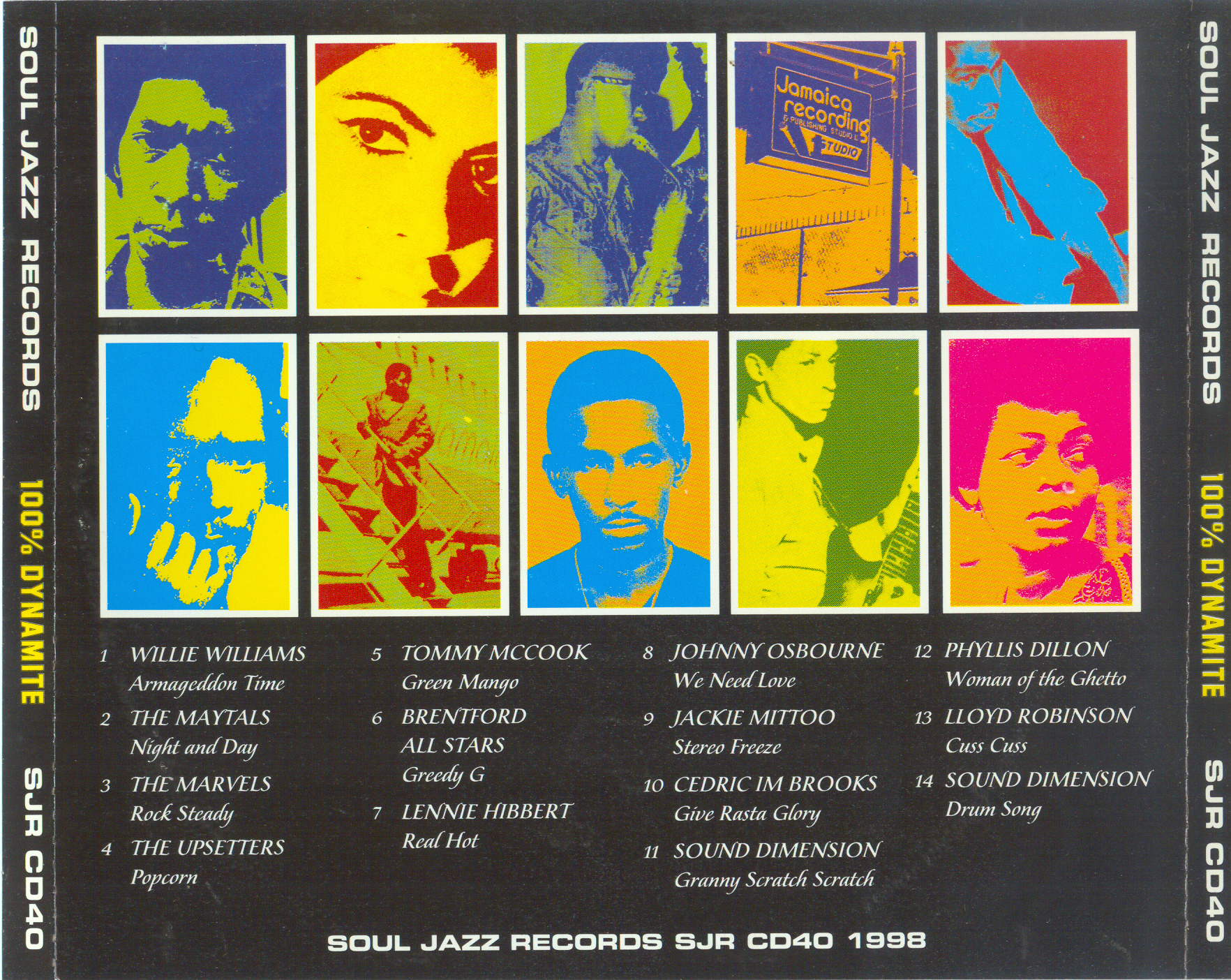
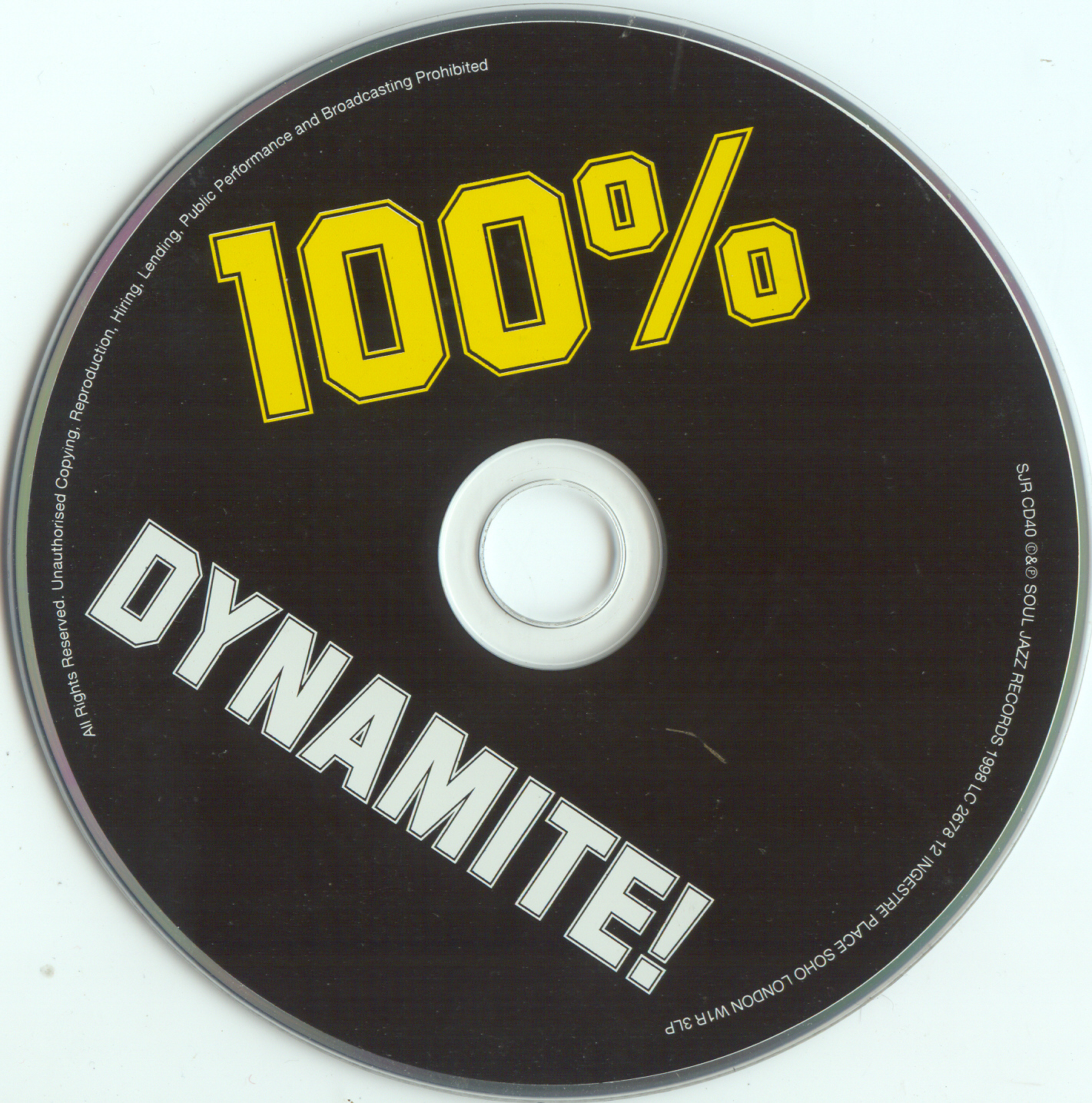
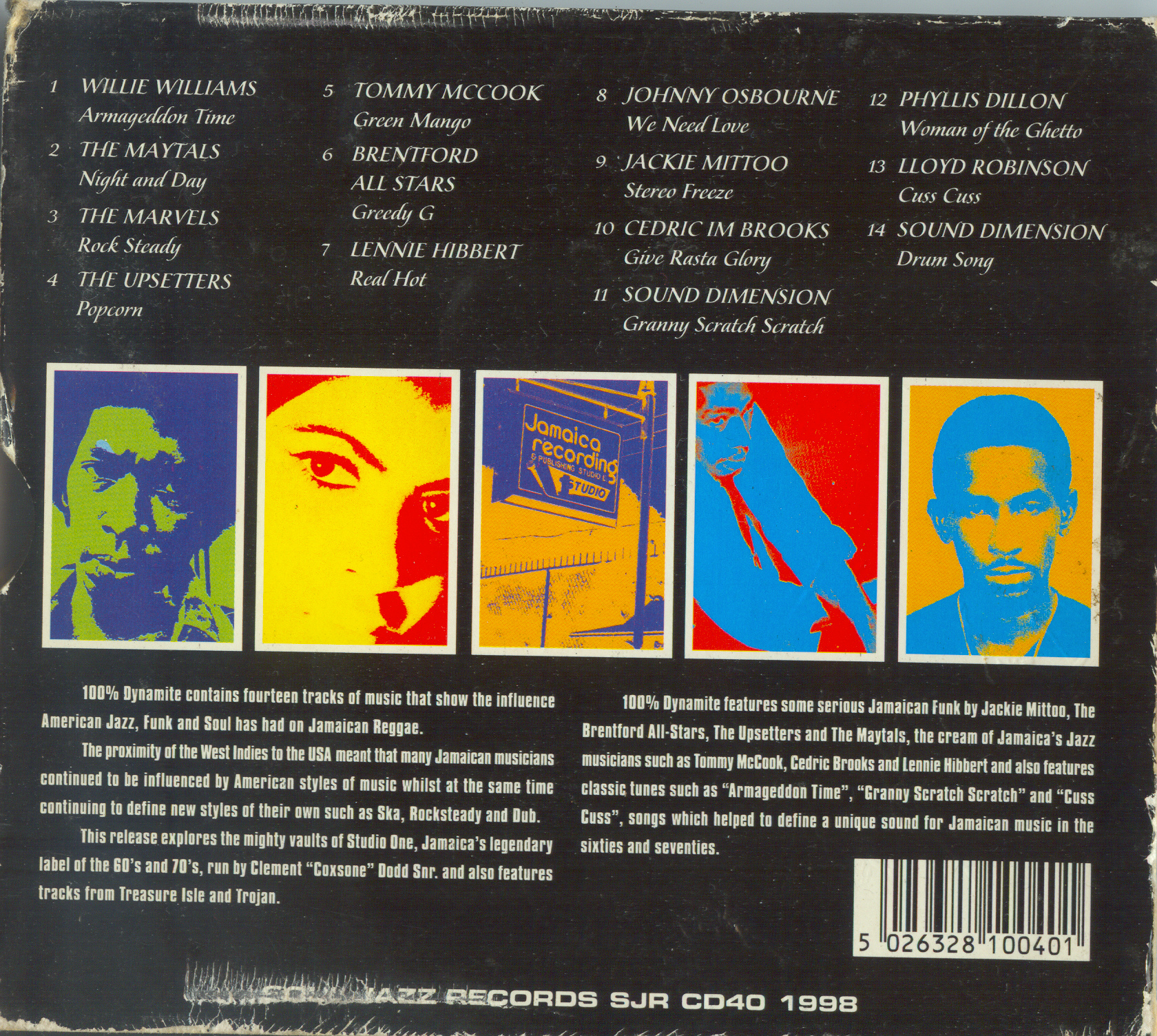
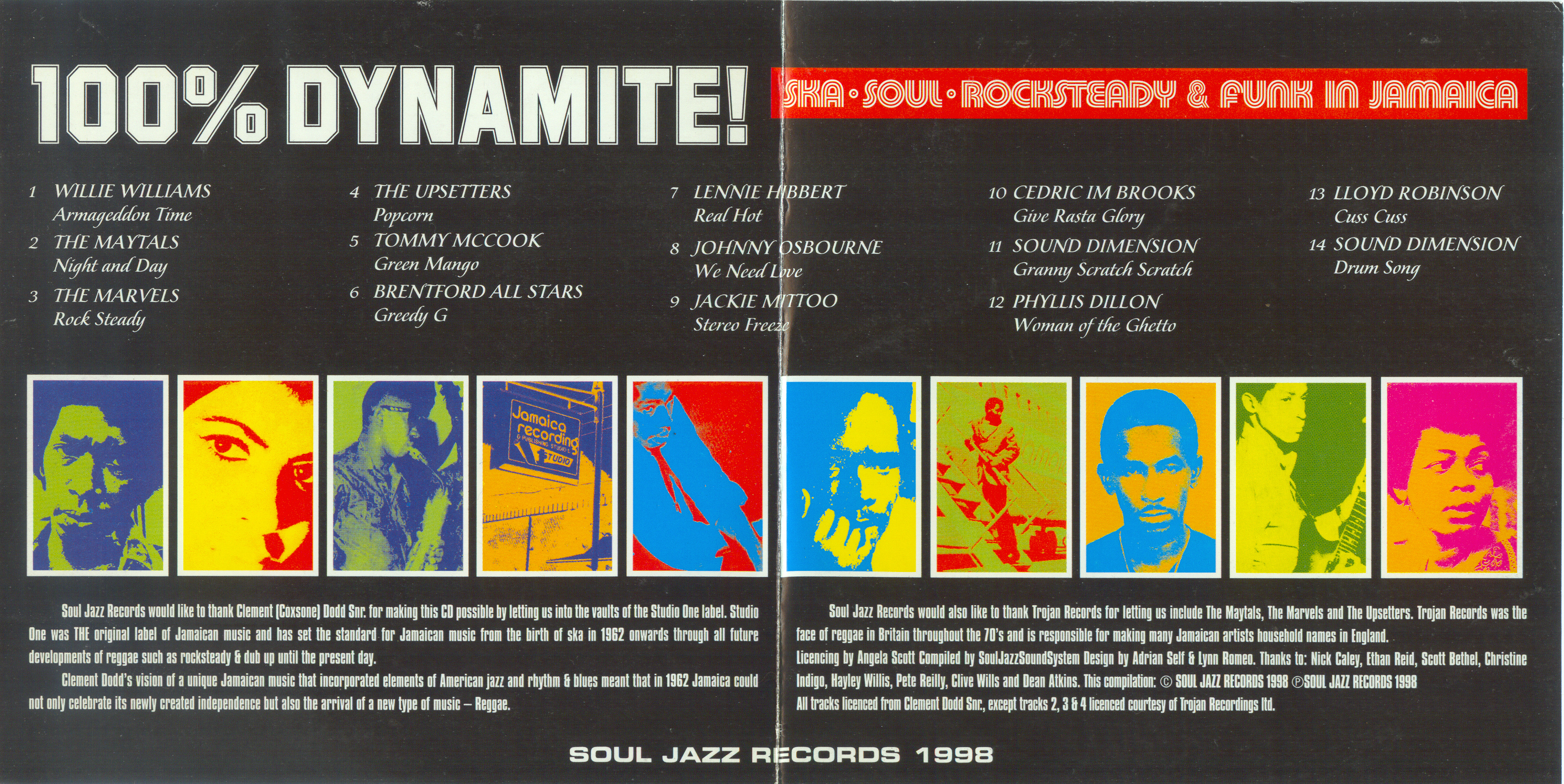
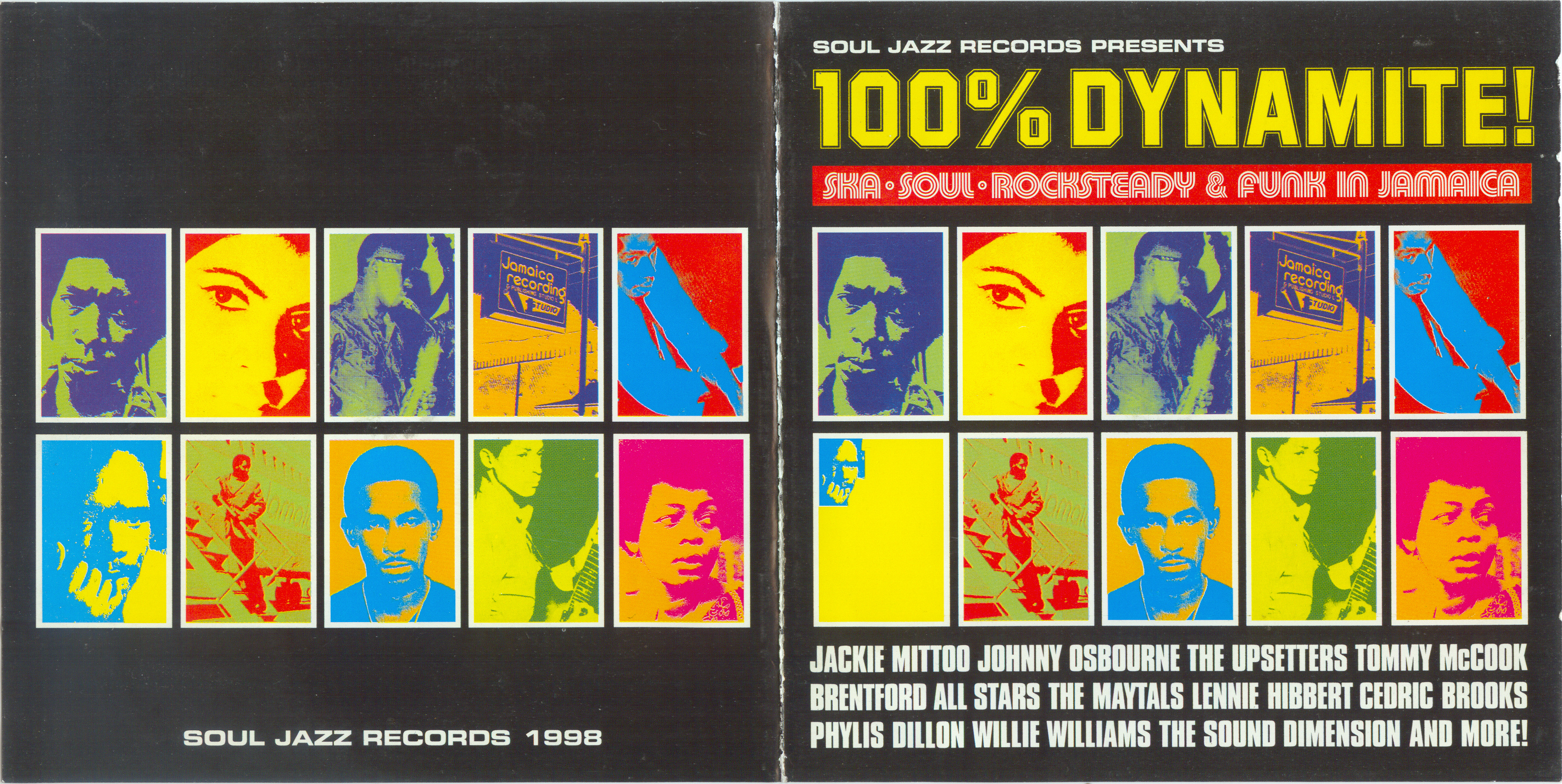
here is the NFO file from indietorrents
Artist Sound Dimension
Album 100% Dynamite
Disc
Genre Reggae
Year 1998
Rating
Composer
Channels 2 (stereo)
Sample Rate 44,1 KHz{CR}
Sample Size 16 bit
Encoder LAME 3.97
Encoder Settings Variable Bit Rate -V 0 (Extreme)
Audio Quality High (Lossy)
Contains Album Art, ID Tag [ID3v2.3 (UTF16) & ID3v1.1]
Channel Mapping Left, Right
Type MPEG Layer 3 Audio File [.mp3]
NMR
Collage name # torrents
Roots Reggae: 1967-1982 23
Compilation info
“100% Dynamite” is the first in a series of 5 compilations of Jamaican music across time. While the other 4 jump from dancehall to dub and back to ska without any real regard for chronology, “100% Dynamite” focuses on the ska recordings which led to the style we all now know as reggae.
While this is a considerable boon to the fan of Jamaican music, those whose experience of ska is found in the ska-punk fusions of America and England will be sorely disappointed. Much of this disc is instrumental and, while it is very exuberant, the style is quite different to what passes for ska these days.
The first selections (“Armagideon Time”, “Night And Day” and “Rock Steady”) are all vocal cuts and not representative of the disc at all. “Armagideon Time” is an early rastafarian spiritual, while “Night and Day” and “Rock Steady” are both love songs – with the latter being voiced by a woman.
By the fourth track, the Upsetters’ “Popcorn”, the album takes off. Lee Perry, the man behind the Upsetters, can already be heard working his trademark studio magic that would later feature on recordings by artists as diverse as Bob Marley and Junior Murvin. The track is a deceptively simple bass, drum and guitar melody which varies ever so slightly and at the least expected moments.
Legendary saxophonist Tommy McCook also contributes a number, “Green Mango”. McCook, a founder member of the Skatalites – the seminal ska band – leads from the front with the desire of a jazz player. “Greedy G”, by the Brentford Allstars, which follows this performance is also a standout.
The rest of the disc is also very strong. Jackie Mittoo (Skatalites pianist) acquits himself admirably on “Stereo Freeze”, and Phyllis Dillon’s heartfelt “Woman of the Ghetto” could well be claimed as one of the first “sufferer’s songs”. Lloy’d Robinson’s “Cuss Cuss” demonstrates a clear link to the reggae for which Jamaica would very soon become famous, his sweet vocals counterpointing with the important message of the song.
Overall, this album is a very useful collection of early ska and proto-reggae. Many of the artists are under-represented at best on the CD racks of the world, and these recordings are certainly among their best. Thus, from a serious fan’s point of view, the compilation is very much worthwile.
The ska or reggae newcomer may also benefit from this disc, but this is slightly less likely. The sad truth is that, after all is said and done, many of the instrumentals do tend to blur into each other – no matter how outstanding they may be. The newcomer may be better served with a Skatalites greatest hits to begin with.
